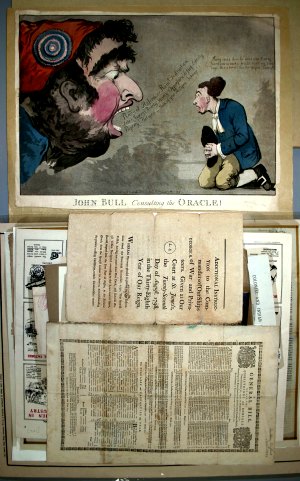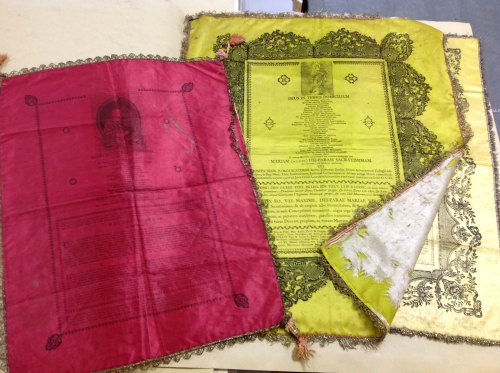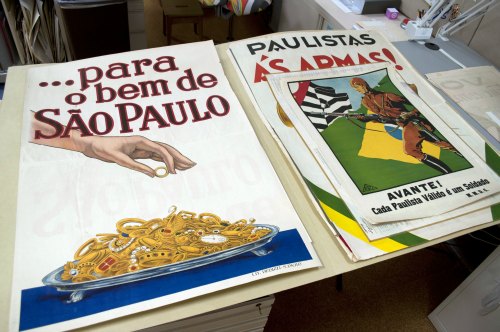 Conservation is nearing the end of a project that we have been working on since 2009, the broadside collection. In addition to broadsides, this collection includes thousands of posters, handbills, maps, diplomas, and a variety of paper ephemera. We in the conservation department have been coordinating with the Digital Production Center (DPC) to enable the safe handling of these materials during digitization.
Conservation is nearing the end of a project that we have been working on since 2009, the broadside collection. In addition to broadsides, this collection includes thousands of posters, handbills, maps, diplomas, and a variety of paper ephemera. We in the conservation department have been coordinating with the Digital Production Center (DPC) to enable the safe handling of these materials during digitization.
Many of the broadsides come to us encapsulated in Mylar that has been sealed with sticky tape. The items must be removed from the encapsulation prior to digitization, and this step also gives us the chance to repair damage that might grow worse with handling during digitization. Many of the broadsides are extremely brittle, and so there are often tears to mend.
The items are organized in folders by state or country, and it is always a surprise to open a folder and see what’s inside. So many of the items are historically fascinating and visually beautiful! To the right is a folder from Britain containing government notices and a caricature print from 1798.
The British folder also contained some much later posters from World War II (below).
This folder of items from Brazil contained broadsides from the Constitutionalist Revolution of 1932.
Also included in this batch of broadsides were highly elaborate diplomas, some on silk with embroidery and some with wax seals and ribbons.
It’s been fun treating such beautiful and fascinating items. Take a closer look at them all in the newly digitized Broadsides and Ephemera Collection!
To see more about this project (including a video), check out our posts at Preservation Underground:
http://blogs.library.duke.edu/preservation/2011/02/19/building-the-broadside-digital-collection/
http://blogs.library.duke.edu/preservation/2010/07/09/heres-your-mule/
http://blogs.library.duke.edu/preservation/2012/04/20/1091-project-digitization-and-conservation/
Post contributed by Grace White, Conservator for Special Collections, as part of our ongoing “In the Conservation Lab” series.






